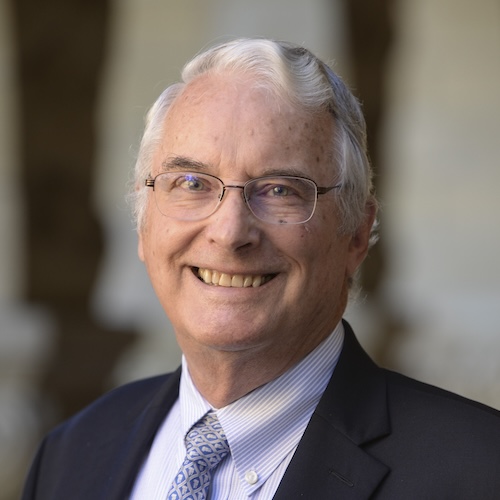CAPRI invited Dr. Thomas Fingar for a CAPRI Public Forum on June 6, 2024. Dr. Fingar, the former Deputy Director of National Intelligence for Analysis and Chairman of the U.S. National Intelligence Council (2005–2008), presented the nuances of the workings of intelligence analysis with regard to policymaking. The event, held at National Chengchi University (NCCU), drew over 100 attendees, including government leaders, diplomats, business representatives, scholars, and students.
Prof. Harry Harding, CAPRI’s board member and Yushan Scholar at NCCU, opened the forum by sharing his long-standing personal and professional connections with Dr. Fingar. He also introduced Dr. Fingar’s stint in the Bureau of Intelligence and Research (INR), which gained a reputation for quality and unbiased analysis under Dr. Fingar’s leadership.
Dr. Fingar delved into the work of intelligence analysts, especially in terms of tailoring the reports to the needs of the policymakers. Intelligence research involves filtering vast amounts of mostly unclassified information, such as news and media, to identify insights for supporting policy decision-making in a given timeframe. He added that the key criterion is not absolute accuracy but the usefulness of the input. These distinguish intelligence reports from academic research because academics can choose their research questions and have time to explore them.
In illustrating what he coined as “wicked problems“, he cited various scenarios exhibiting complex issues requiring long-term and multifaceted approaches. The scenarios include the Russian–Ukraine war, polio resurgence, climate change, migration, nuclear stability, and green technology. He elaborated on the interconnectedness of these topics, and how the effects of one crisis create a ripple effect to other markets and economies.
In dealing with the wicked problems, he highlighted the need to ensure that one international player doesn’t negate the solution implemented by the other. Anchored to CAPRI’s objective of cross-sector/country collaboration to build a resilient society, Dr. Fingar concluded his discussion noting, “Wicked problems are wicked because they can’t be solved by a single government.”
Following Dr. Fingar’s discussion, the floor was opened to the audience for queries, moderated by Prof. Syaru Shirley Lin, Chair of CAPRI. Questions raised traversed topics the implications of foreign and domestic policies to national intelligence, privatization of intelligence, information sharing, the roles of social media and AI in intelligence, and defense diplomacy.

Shorenstein APARC Fellow at Stanford University's Freeman Spogli Institute for International Studies
Deputy Director of National Intelligence for Analysis (2005–2008)
Chairman of the National Intelligence Council (2005–2008)
Dr. Thomas Fingar is a Shorenstein APARC Fellow in the Freeman Spogli Institute for International Studies at Stanford University. From 2005 through 2008, he served as the first Deputy Director of National Intelligence for Analysis and, concurrently, as Chairman of the National Intelligence Council. Previous positions include Assistant Secretary of the State Department’s Bureau of Intelligence and Research (2000-2001 and 2004-2005), Principal Deputy Assistant Secretary (2001-2003), and Deputy Assistant Secretary for Analysis (1994-2000). Dr. Fingar is a graduate of Cornell University (A.B. in Government and History, 1968), and Stanford University (M.A., 1969 and Ph.D., 1977 both in Political Science).


